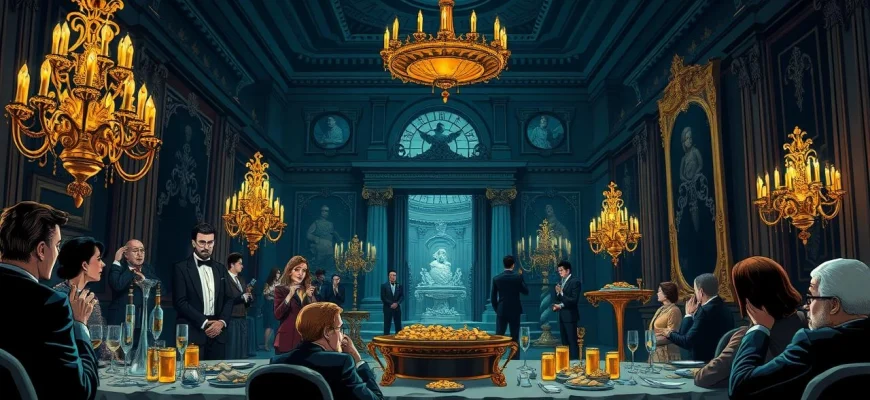If you loved the biting satire and dark humor of 'Triangle of Sadness' (2022), you're in for a treat. This article explores 10 movies and TV shows that share its themes of wealth, power, and societal critique, all wrapped in sharp wit and unforgettable storytelling. Whether you're craving more social commentary or just want to dive into similarly provocative narratives, this list has something for every fan of Ruben Östlund's masterpiece.
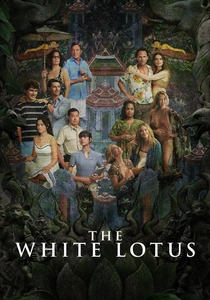
The White Lotus (2021)
Description: Mike White's 'The White Lotus' shares with 'Triangle of Sadness' a satirical take on the lives of the wealthy and the power imbalances in luxury settings. Both works use dark humor and sharp social commentary to critique privilege and exploitation. The ensemble cast and episodic structure of 'The White Lotus' allow for a multifaceted exploration of its themes, much like the layered narrative of 'Triangle of Sadness'.
Fact: 'The White Lotus' was initially conceived as a limited series but was renewed due to its critical and commercial success. The show was filmed during the COVID-19 pandemic, with the cast and crew living in a bubble at the Four Seasons Resort Maui. Jennifer Coolidge's performance as Tanya McQuoid earned her widespread acclaim and an Emmy Award.
 Watch Now
Watch Now 
Dogtooth (2009)
Description: Another Yorgos Lanthimos film, 'Dogtooth', like 'Triangle of Sadness', delves into the grotesque and the absurd to critique societal structures. Both films feature characters trapped in bizarre, controlled environments, highlighting the arbitrary nature of social norms. The unsettling, clinical tone of 'Dogtooth' mirrors the discomfort evoked by 'Triangle of Sadness'.
Fact: 'Dogtooth' was banned in Iceland due to its controversial content. The film's dialogue was largely improvised, with the actors given strict guidelines on how to deliver their lines. Lanthimos drew inspiration from the works of Samuel Beckett and Harold Pinter.
 Watch Now
Watch Now 
Snowpiercer (2013)
Description: Bong Joon-ho's 'Snowpiercer', like 'Triangle of Sadness', is a high-concept satire that critiques class inequality through a confined, dystopian setting. Both films use extreme scenarios to highlight the brutality of social hierarchies. The visceral storytelling and dark humor in 'Snowpiercer' are similar to the approach taken in 'Triangle of Sadness'.
Fact: 'Snowpiercer' is based on a French graphic novel called 'Le Transperceneige'. The film's train set was built on a soundstage in Prague and spanned nearly 500 meters. Tilda Swinton's eccentric performance was inspired by Margaret Thatcher and other authoritarian figures.
 Watch Now
Watch Now 
Force Majeure (2014)
Description: Another Ruben Östlund film, 'Force Majeure', explores themes of masculinity, privilege, and societal expectations, much like 'Triangle of Sadness'. Both films use a vacation setting to unravel the fragile facades of their characters. The dry, uncomfortable humor and meticulous framing in 'Force Majeure' are stylistic hallmarks that Östlund further refined in 'Triangle of Sadness'.
Fact: 'Force Majeure' was inspired by a real-life avalanche incident Östlund witnessed. The film's original Swedish title, 'Turist', translates to 'Tourist', highlighting its themes of escapism and privilege. The movie was remade in 2020 as 'Downhill', starring Will Ferrell and Julia Louis-Dreyfus.
 Watch Now
Watch Now 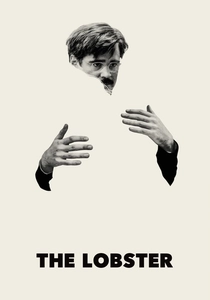
The Lobster (2015)
Description: Yorgos Lanthimos' 'The Lobster' shares with 'Triangle of Sadness' a surreal, dystopian take on societal norms and human relationships. Both films use absurdist scenarios to critique the pressures of conformity and the absurdity of social rituals. The deadpan humor and unsettling atmosphere in 'The Lobster' are reminiscent of the tone in 'Triangle of Sadness'.
Fact: 'The Lobster' was Lanthimos' first English-language film. The film's premise was inspired by a dating website that matched people based on their allergies. Colin Farrell gained 40 pounds for his role to appear more 'average'.
 Watch Now
Watch Now 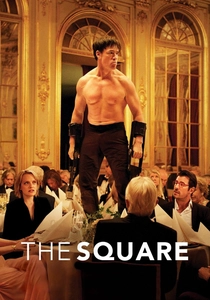
The Square (2017)
Description: Ruben Östlund's 'The Square' is another biting satire on the art world and the hypocrisy of the elite, much like 'Triangle of Sadness'. Both films use absurdist humor and uncomfortable scenarios to critique societal norms and the performative nature of morality among the wealthy. The films also share a similar visual style, with long takes and deliberate pacing that heighten the tension.
Fact: 'The Square' won the Palme d'Or at the 2017 Cannes Film Festival. The film features a memorable scene with a performance artist pretending to be a gorilla, which caused real chaos during filming. Östlund's background in skiing documentaries influenced his observational filmmaking style.
 Watch Now
Watch Now 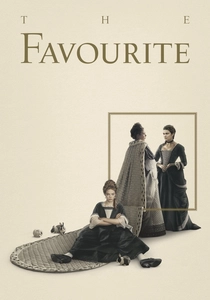
The Favourite (2018)
Description: Yorgos Lanthimos' 'The Favourite' shares with 'Triangle of Sadness' a darkly comedic take on power dynamics and the absurdity of the elite. Both films use historical or luxurious settings to explore themes of manipulation, competition, and the grotesque. The sharp wit and visual opulence of 'The Favourite' are akin to the style of 'Triangle of Sadness'.
Fact: 'The Favourite' was shot using natural light and candlelight to maintain historical accuracy. Olivia Colman won the Academy Award for Best Actress for her role as Queen Anne. The film's script was originally written in the 1990s but was shelved until Lanthimos expressed interest.
 Watch Now
Watch Now 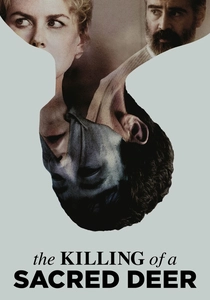
The Killing of a Sacred Deer (2017)
Description: Yorgos Lanthimos' 'The Killing of a Sacred Deer' shares with 'Triangle of Sadness' a chilling, surreal atmosphere and a focus on moral dilemmas and power dynamics. Both films use unsettling narratives to explore themes of guilt, punishment, and the arbitrary nature of justice. The clinical, detached style of 'The Killing of a Sacred Deer' is reminiscent of 'Triangle of Sadness'.
Fact: The film's title references the myth of Iphigenia, who was sacrificed by her father Agamemnon. Barry Keoghan, who plays the mysterious Martin, improvised many of his unsettling mannerisms. The film's score, composed by Colin Stetson, uses unconventional instruments to create an eerie soundscape.
 Watch Now
Watch Now 
Parasite (2019)
Description: Bong Joon-ho's 'Parasite' shares with 'Triangle of Sadness' a scathing critique of class inequality and the inherent violence of capitalism. Both films employ a mix of humor and horror to depict the grotesque disparities between the rich and the poor. The meticulous storytelling and visual symbolism in 'Parasite' mirror the layered narrative and striking imagery of 'Triangle of Sadness'.
Fact: 'Parasite' made history by becoming the first non-English language film to win the Academy Award for Best Picture. The film's iconic semi-basement apartment set was built to scale to ensure authenticity. Bong Joon-ho drew inspiration from his own experiences with class disparity in South Korea.
 Watch Now
Watch Now 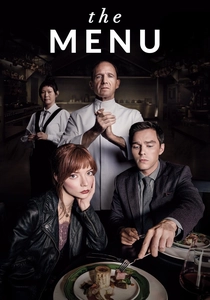
The Menu (2022)
Description: Like 'Triangle of Sadness', 'The Menu' is a darkly comedic satire that critiques the excesses of the wealthy and the absurdities of high society. Both films use a confined setting (a luxury yacht in 'Triangle of Sadness' and an exclusive restaurant in 'The Menu') to explore themes of class disparity, power dynamics, and the grotesque nature of privilege. The sharp, biting humor and unexpected twists in both films serve to underscore their social commentary.
Fact: 'The Menu' was directed by Mark Mylod, known for his work on 'Succession', another show that delves into the lives of the ultra-wealthy. The film features Ralph Fiennes in a chilling role as a chef with a sinister agenda. The script was written by Seth Reiss and Will Tracy, former writers for 'The Onion', which explains its sharp satirical edge.
 Watch Now
Watch Now 
